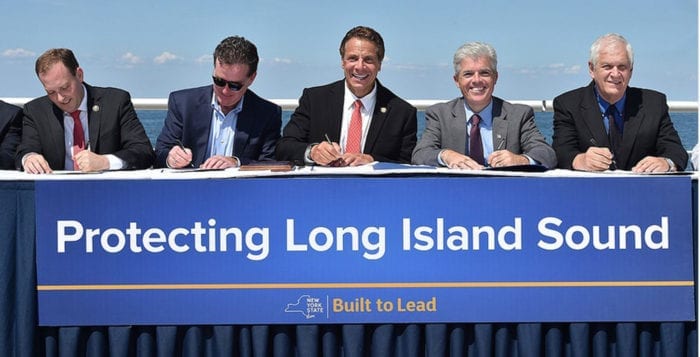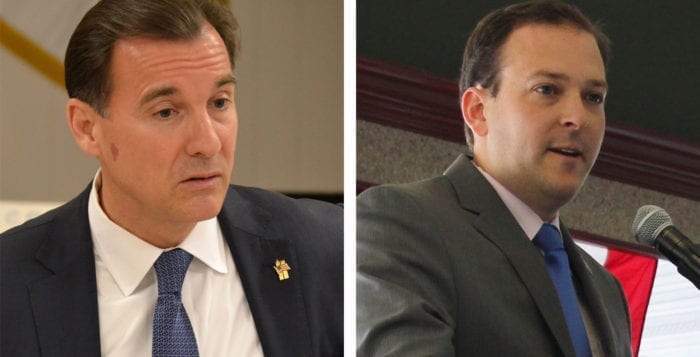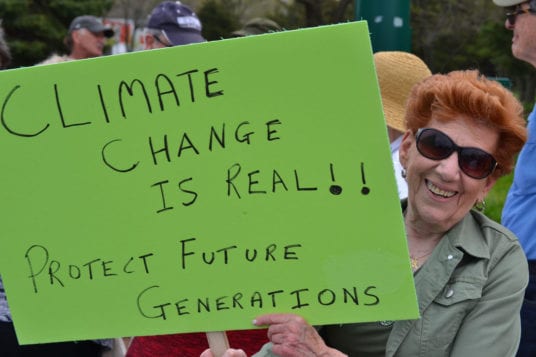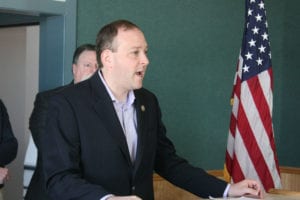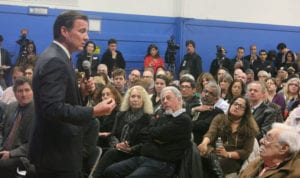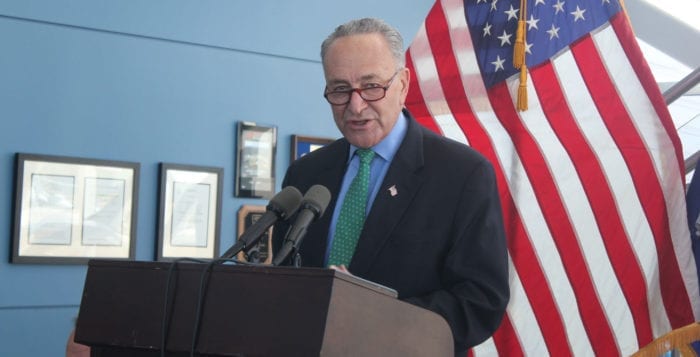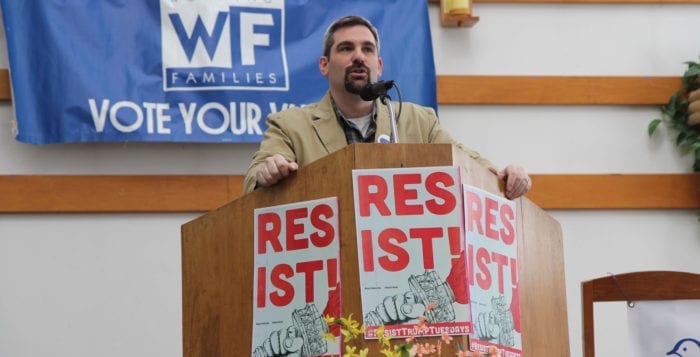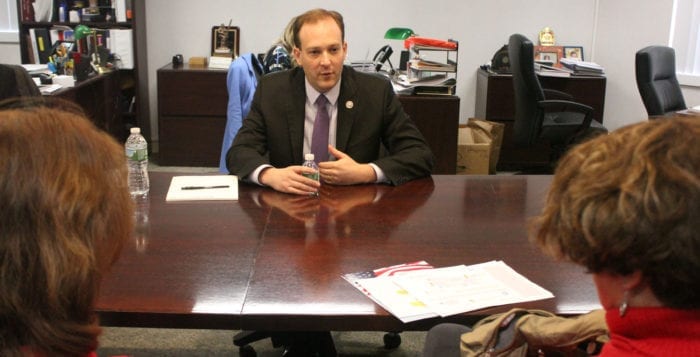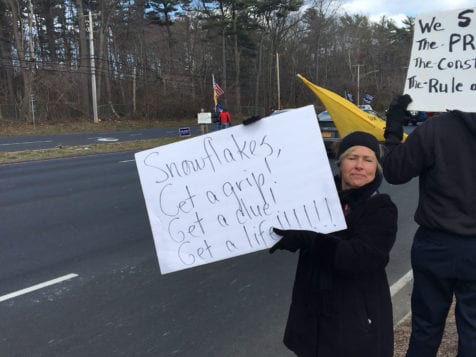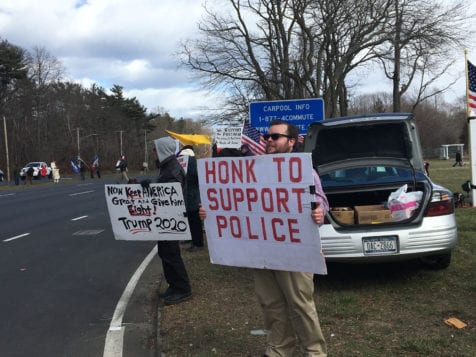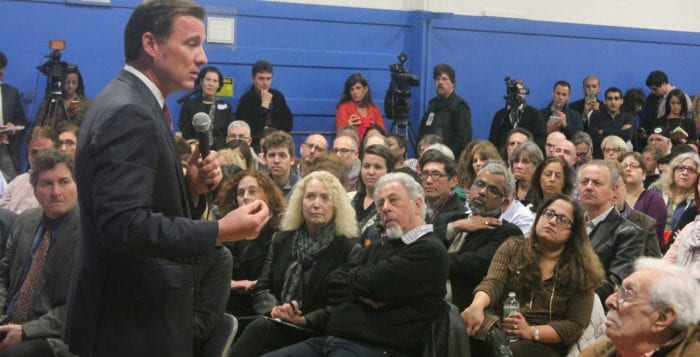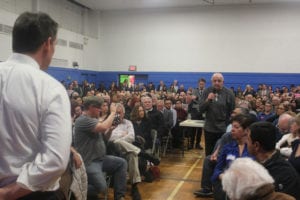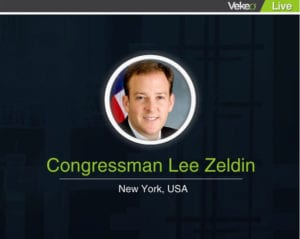By Alex Petroski
U.S. President Donald Trump’s (R) decision to withdraw from the Paris Agreement, a global effort to combat the threat of climate change, elicited strong responses from around the world. One of the more notable reactions came from New York Gov. Andrew Cuomo (D), who along with the governors of California and Washington State established the United States Climate Alliance. The coalition will convene the three states, and others that have come out in support of the initiative, in committing to uphold the parameters of the Paris Agreement despite Trump’s June 1 announcement. As of June 5 the alliance included 13 members — 12 states and Puerto Rico.
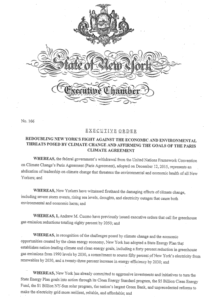
“The White House’s reckless decision to withdraw from the Paris climate agreement has devastating repercussions not only for the United States, but for our planet,” Cuomo said in a statement. “New York State is committed to meeting the standards set forth in the Paris accord regardless of Washington’s irresponsible actions. We will not ignore the science and reality of climate change, which is why I am also signing an executive order confirming New York’s leadership role in protecting our citizens, our environment and our planet.”
The Paris Agreement, which officially took effect in November 2016, aimed to strengthen the response to climate change globally by keeping temperature rise below 2 degrees Celsius during the current century and also strengthen countries’ ability to deal with the effects of climate change. The U.S. is now one of only three nations on the planet not included in the agreement.
According to Cuomo, the United States Climate Alliance will seek to reduce emissions by 26 to 28 percent from 2005 levels and meet or exceed the targets of the federal Clean Power Plan, each of which were self-imposed U.S. goals of the Paris Agreement. The Clean Power Plan was established in 2015 to establish state-by-state targets for carbon emission reductions. Trump signed an executive order early on in his administration placing a hold on the plan and pledging a review. Cuomo also announced New York State will be investing $1.65 billion in renewable energy and energy efficiency in the aftermath of Trump’s decision. In addition he said he aims to create 40,000 clean energy jobs by 2020.
Republican New York State Sens. John Flanagan (R-East Northport) and Ken LaValle (R-Port Jefferson) did not respond to requests for comment through spokespersons.
Local officials from across the political spectrum spoke out about Trump’s decision in the aftermath of the announcement.
“We live on an island and have already begun to see some of the effects of our rising seas,” Brookhaven Supervisor Ed Romaine (R) said in a statement. “To protect Brookhaven for our children and generations to come it is our responsibility to take action now. The president’s announcement today regarding the Paris climate accord is disappointing. On behalf of our residents, I will continue to fight to protect our environment.”
Democrats including 3rd Congressional District U.S. Rep. Tom Suozzi (D-Glen Cove), U.S. Sens. Chuck Schumer (D-New York) and Kirsten Gillibrand (D-New York) and others blasted the decision in public statements.
“President Trump’s decision to withdraw from the Paris Climate Agreement is a devastating failure of historic proportions,” Schumer said. “Future generations will look back on President Trump’s decision as one of the worst policy moves made in the 21st century because of the huge damage to our economy, our environment and our geopolitical standing. Pulling out of the Paris Agreement doesn’t put America first, it puts America last in recognizing science, in being a world leader and protecting our own shoreline, our economy and our planet.”
New York State 4th District Assemblyman Steve Englebright (D-Setauket) expressed support for the newly minted climate alliance on Twitter, sharing the hashtag “#LeadNotLeave.”
First Congressional District U.S. Rep. Lee Zeldin (R-Shirley) said in an emailed statement through a spokeswoman that he supported many of the goals of the Paris Agreement, but thought the U.S. “approached this entire agreement all wrong.” He criticized former President Barack Obama (D), who played a leadership role in establishing the Paris Agreement, for bypassing Congress in reaching the agreement and for what he viewed as outsized pledges made by the U.S. compared to other world powers in the agreement.
“What we need to do moving forward should include continuing to take an international approach to protect clean air and clean water, and reduce emissions that are impacting our climate, but we must negotiate it correctly so that we aren’t over promising, under delivering and causing unnecessary harm,” he said.
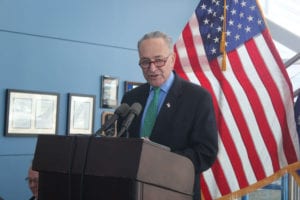
During Trump’s June 1 speech announcing the withdrawal, he sited a loss of American jobs in the coal industry and crippling regulations on the business world as the drivers behind his decision.
U.S. Environmental Protection Agency Administrator Scott Pruitt, who was appointed by Trump, praised his decision.
“This is a historic restoration of American Economic Independence — one that will benefit the working class, the working poor, and working people of all stripes,” he said. “With this action, you have declared that people are the rulers of this country once again.”
Administrators from the New York District Office of the U.S. Small Business Administration, a government agency that offers support to small businesses, were not available to comment on Trump’s decision or the formation of the United States Climate Alliance, but a spokesperson for the department instead directed the request to answers U.S. SBA Administrator Linda McMahon gave to Yahoo Global News June 6. She agreed with Trump’s decision to leave the Paris Agreement, adding she believes this will result in more job opportunities for Americans.
“I think [Trump] was making a statement that we’re going to look at what’s good for America first,” she said. “I do think climate change is real, and I do think that man has some contribution to climate change. As to the extent of the science, predictions as to what might happen 20, 30, 40 years from now, I’m not sure we have that totally decided, but I do respect the science behind a lot of it.”

